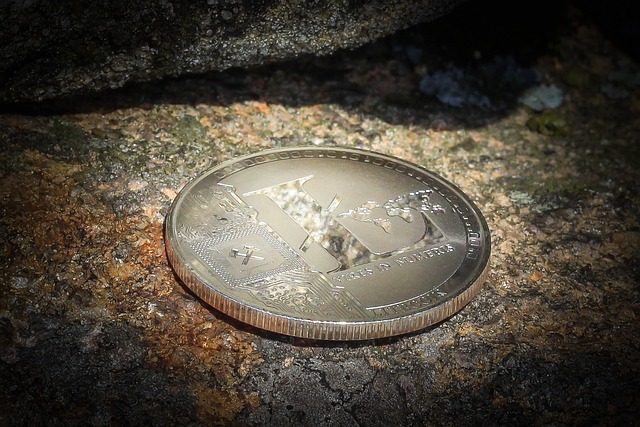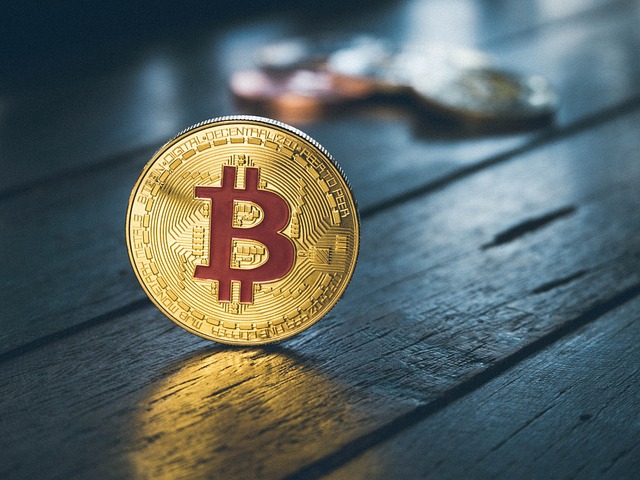Navigating the Pros and Cons of Decentralized Finance
Navigating the Pros and Cons of Decentralized Finance

What is Decentralized Finance?
Decentralized Finance, often abbreviated as DeFi, is a revolutionary concept that is gaining significant momentum in the world of finance. Unlike traditional financial systems that rely on intermediaries such as banks or brokers, DeFi operates on a decentralized network, predominantly facilitated by blockchain technology. In simple terms, it enables individuals to access financial services directly without the need for intermediaries.
At its core, DeFi offers a wide range of financial instruments and applications, such as lending, borrowing, trading, and investing, in a decentralized and trustless manner. This means that transactions are executed without the involvement of a central authority, providing users with greater control over their funds and eliminating the need to place trust in a third party. By utilizing smart contracts, which are self-executing agreements coded on the blockchain, DeFi platforms enable transparent and automated transactions, fostering efficiency and reducing costs. With its ability to democratize financial services and enable financial inclusion for individuals worldwide, decentralized finance has the potential to revolutionize the way we interact with money and traditional financial systems.
How Does Decentralized Finance Work?
Decentralized finance, often referred to as DeFi, operates on blockchain technology, aiming to revolutionize traditional financial systems. Unlike centralized finance, which relies on intermediaries such as banks or financial institutions, decentralized finance is built on a peer-to-peer network. This enables users to transact directly without the need for intermediaries, reducing costs, and increasing efficiency.
At its core, decentralized finance leverages smart contracts, which are self-executing agreements coded directly into the blockchain. These smart contracts automate various financial functions, such as lending, borrowing, trading, and more. By removing the need for intermediaries and relying on automated smart contracts, decentralized finance offers users greater control over their financial activities and eliminates the need for trust in third parties. Instead, trust is embedded within the blockchain, which ensures transparency, immutability, and security for all participants. Through the decentralized nature of DeFi, individuals worldwide can access financial services, regardless of their location or status, fostering greater financial inclusion and accessibility.
The Advantages of Decentralized Finance
The first advantage of decentralized finance is the elimination of intermediaries. In traditional financial systems, intermediaries such as banks, brokers, and clearinghouses play a vital role in facilitating transactions. However, these intermediaries often introduce delays, additional fees, and the need for trust. With decentralized finance, through the use of smart contracts and blockchain technology, transactions can occur directly between parties, removing the need for middlemen. This not only speeds up the transaction process but also reduces costs and promotes transparency.
Another advantage of decentralized finance is greater accessibility. Traditional financial services are often inaccessible to a large portion of the global population, particularly those in developing countries or those without a formal banking system.


The Disadvantages of Decentralized Finance
While decentralized finance (DeFi) offers numerous advantages, it is crucial to acknowledge the disadvantages it presents. One of the main challenges is the high level of risk associated with DeFi platforms. Unlike traditional financial systems that have regulatory bodies in place to protect consumers, DeFi lacks such oversight. This means that users are solely responsible for managing and securing their own assets, making them susceptible to theft, scams, and hacking incidents.
Another disadvantage of DeFi is the potential for smart contract vulnerabilities. Smart contracts serve as the building blocks of DeFi applications, executing transactions automatically based on predefined terms. However, these contracts are not immune to bugs or coding errors, which can lead to disastrous consequences. In the past, we have witnessed instances where faulty smart contracts resulted in the loss of millions of dollars. Therefore, users must exercise caution and ensure the utmost diligence when interacting with DeFi platforms to mitigate these risks.
Understanding the Risks in Decentralized Finance
The decentralized nature of finance offers many benefits, but it is not without its risks. One key risk to consider is the lack of regulatory oversight. Unlike traditional financial systems that operate under the supervision of governing authorities, decentralized finance operates on blockchain technology, which is largely unregulated. This means that there is no central authority to ensure compliance with rules and regulations, leaving room for potential fraudulent activities and scams.
Another risk to be aware of is the potential for technical vulnerabilities. While blockchain technology is generally considered secure, it is not completely immune to hacking attempts or system failures. Smart contracts, which underpin many decentralized finance platforms, are not infallible and can be exploited if not properly audited or implemented. Additionally, because decentralized finance relies on decentralized networks and peer-to-peer transactions, there is a risk of network congestion and delays, which could impact the overall efficiency and reliability of the system.
Exploring the Potential Applications of Decentralized Finance
Exploring the Potential Applications of Decentralized Finance
Decentralized finance, also known as DeFi, has gained significant attention in recent years due to its potential to revolutionize various sectors. One key application of DeFi is in the realm of lending and borrowing. By removing the need for intermediaries such as banks, DeFi allows individuals to directly lend or borrow funds from one another in a secure and transparent manner. This not only reduces the costs associated with traditional lending systems but also opens up opportunities for individuals who may have been excluded from the traditional financial system.
Another promising area where DeFi can make a significant impact is in the field of remittances. Sending money across borders can be expensive and time-consuming, especially for individuals in developing countries. With DeFi, individuals can use decentralized platforms to send and receive funds instantly and at a fraction of the cost compared to traditional remittance services. This has the potential to greatly improve financial inclusion and empower individuals by providing them with more efficient and affordable remittance options.
The potential applications of DeFi are vast and varied, offering solutions to longstanding financial challenges. However, as with any emerging technology, there are also risks and challenges that need to be considered. Before engaging in DeFi, individuals must carefully evaluate the platforms they choose, educate themselves about the associated risks, and stay vigilant to protect their assets. By doing so, they can leverage the power of decentralized finance to create a more inclusive and efficient financial ecosystem.
Key Considerations Before Engaging in Decentralized Finance
Before diving into the world of decentralized finance (DeFi), it is essential to consider a few key factors that can greatly influence your experience. Firstly, it is crucial to educate yourself about the basic principles and workings of DeFi. While decentralized finance offers numerous opportunities, it operates on blockchain technology, which may be unfamiliar to many. Taking the time to understand the fundamentals will allow you to make informed decisions and avoid potential pitfalls.
Secondly, consider the risks associated with DeFi. Like any investment or financial endeavor, DeFi comes with its fair share of risks. It is important to assess these risks and only invest or engage with funds that you can afford to lose. Keep in mind that DeFi platforms are not regulated in the same way as traditional financial institutions, so there may be limited recourse in case of any unforeseen circumstances. Conduct thorough research, seek advice from experts, and proceed cautiously when entering the world of decentralized finance.
Tips for Successfully Navigating Decentralized Finance Platforms
Navigating decentralized finance (DeFi) platforms can be a daunting task, especially for those who are new to the space. However, with a few key tips, you can successfully navigate these platforms and make the most of the opportunities they offer. Firstly, it’s crucial to conduct thorough research and due diligence before engaging in any DeFi platform. Familiarize yourself with the project, the team behind it, and the technology it utilizes. Look for audits and reviews to ensure that the platform is legitimate and secure. Additionally, it’s essential to start small and only invest what you can afford to lose. DeFi platforms are highly volatile, and it’s wise to manage your risk by diversifying your investments and not going all-in on a single platform.
Secondly, it’s worth considering the user experience and interface of the platforms you choose to engage with. Some DeFi platforms might have complex interfaces that can be overwhelming for newcomers. Look for platforms that offer user-friendly interfaces and clear instructions on how to navigate and use their services. Understanding the platform’s functionalities, such as how to add liquidity to liquidity pools or how to lend and borrow assets, is crucial for participating effectively. Finally, stay informed about the latest developments and updates in the DeFi space. Join relevant communities and forums to engage with experienced users and gain valuable insights. Keeping up with industry news and trends will help you make informed decisions and maximize your chances of success in decentralized finance.
• Conduct thorough research and due diligence before engaging in any DeFi platform
• Familiarize yourself with the project, team, and technology behind it
• Look for audits and reviews to ensure legitimacy and security
• Start small and only invest what you can afford to lose
• Manage risk by diversifying investments across multiple platforms
• Consider user experience and interface when choosing a platform
• Look for user-friendly interfaces with clear instructions on navigation
and service usage
• Understand how to add liquidity or lend/borrow assets effectively
on the chosen platform
• Stay informed about the latest developments in the DeFi space
• Join relevant communities and forums to engage with experienced users
for valuable insights.
Common Challenges Faced by Users of Decentralized Finance
Navigating the world of decentralized finance can be both exciting and daunting for users. One common challenge faced by users is the complexity of the platforms themselves. Decentralized finance relies on blockchain technology, which can be difficult for newcomers to understand. The jargon, technical terms, and intricate protocols can leave users feeling overwhelmed and unsure of where to begin. Additionally, the decentralized nature of these platforms means that there isn’t a central authority to provide support or guidance, further exacerbating the challenge for users who are trying to navigate the terrain on their own.
Another challenge faced by users of decentralized finance is the issue of security. While blockchain technology is often lauded for its security features, the decentralized nature of these platforms brings its own set of risks. Users need to be vigilant in protecting their private keys and ensuring that they are using reputable platforms. However, the lack of regulation and oversight in the decentralized finance space means that users may be more susceptible to scams and hacks.

The Future of Decentralized Finance
Decentralized finance has gained significant momentum in recent years, promising a future where traditional financial systems are disrupted and individuals have greater control over their money. The future of decentralized finance holds immense potential for innovation and widespread adoption.
One key aspect that will drive the future of decentralized finance is the evolution of blockchain technology. As blockchain continues to advance, we can expect more efficient and scalable decentralized finance applications to emerge. This will enable faster transaction times and lower fees, making decentralized finance more accessible to a broader audience. Additionally, advancements in smart contract technology will allow for more complex financial instruments and automated processes, opening up new possibilities for decentralized finance platforms. The future of decentralized finance is an exciting one, as it holds the promise of creating a financial ecosystem that is more inclusive, transparent, and accessible for all.
What is Decentralized Finance?
Decentralized Finance, also known as DeFi, refers to a system that allows financial transactions and services to operate without intermediaries, such as banks or traditional financial institutions.
How Does Decentralized Finance Work?
Decentralized Finance operates on blockchain technology, where transactions are recorded on a public ledger. Smart contracts govern the rules and processes, ensuring transparency and eliminating the need for intermediaries.
What are the advantages of Decentralized Finance?
Decentralized Finance offers advantages such as increased accessibility, lower fees, faster transactions, greater financial inclusion, and the ability to bypass traditional gatekeepers.
Are there any disadvantages to Decentralized Finance?
Yes, there are some disadvantages to consider. Decentralized Finance platforms can be complex for beginners, susceptible to hacking or fraud, and may lack regulatory oversight, leading to potential risks.
What are the risks associated with Decentralized Finance?
Risks in Decentralized Finance include smart contract vulnerabilities, potential loss of funds due to hacking or human error, regulatory uncertainties, and the volatility of underlying assets.
What are some potential applications of Decentralized Finance?
Decentralized Finance can be applied in various areas, including lending and borrowing, decentralized exchanges, stablecoins, asset management, insurance, and remittances, among others.
What factors should I consider before engaging in Decentralized Finance?
Before engaging in Decentralized Finance, it’s important to consider factors such as your risk tolerance, understanding of the platform, security measures, and regulatory implications in your jurisdiction.
Any tips for successfully navigating Decentralized Finance platforms?
Absolutely! Start by educating yourself, conducting thorough research on platforms, understanding the risks involved, utilizing secure wallets, diversifying investments, and keeping an eye on the market.
What are some common challenges faced by users of Decentralized Finance?
Users of Decentralized Finance may face challenges such as complicated user interfaces, high gas fees, potential security risks, the absence of customer support, and limited scalability.
What does the future hold for Decentralized Finance?
The future of Decentralized Finance looks promising. As technology advances and regulatory frameworks develop, we can expect increased adoption, innovation, and integration with traditional financial systems.
Todays Featured Product:
Buy, exchange and grow your crypto securely with a Ledger hardware wallet, combined with the Ledger Live app. It’s never been easier to keep your crypto safe and accessible. Buy direct from Ledger.com and get todays Special Offers Here.




